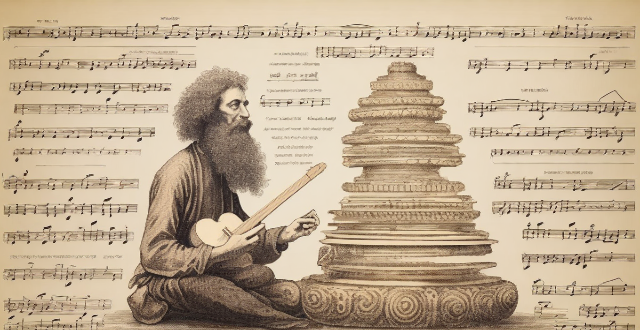Athletes use music in various ways to prepare for competitions, including creating warm-up playlists, listening to calming music for mental preparation, using pump-up songs for emotional momentum, establishing consistent pre-game rituals, and incorporating music into recovery and relaxation routines. The strategic use of music can enhance focus, energy, and overall readiness for competition.

How Athletes Use Music to Prepare for Competitions
Athletes often use music as a tool to help them prepare mentally and physically for competitions. Here are some ways in which athletes incorporate music into their pre-competition routines:
1. Warming Up and Stretching
- Warm-up Playlists: Athletes create playlists that include upbeat songs with a steady rhythm to match the pace of their warm-up exercises. This helps them maintain a consistent warm-up tempo and can also serve as a motivator to push through the initial stages of preparation.
- Dynamic Stretching: Some athletes prefer more energetic music during dynamic stretching to keep their energy levels high and ensure they are fully alert and ready for action.
2. Mental Preparation
- Focus and Concentration: Before a competition, athletes might listen to calmer, more focused music to help clear their minds and enter a state of concentration. Instrumental pieces or songs with minimal lyrics can be effective in reducing distractions and enhancing mental clarity.
- Visualization: Music can be used as part of a visualization routine where athletes imagine themselves performing successfully in the competition. The right kind of music can enhance this experience by creating an emotional connection to the visualization.
3. Building Emotional Momentum
- Pump-Up Songs: Many athletes have specific songs that they use to pump themselves up before a competition. These songs often have powerful lyrics, intense beats, and are personally motivating to the individual athlete.
- Emotional Association: Music can be paired with past successes or breakthrough moments, creating a positive association that athletes can tap into just before competing.
4. Routine and Consistency
- Pre-Game Ritual: Just like other aspects of their pre-competition routine, music can become a consistent element that athletes rely on for comfort and familiarity. Having a set playlist for different parts of the day can bring structure and predictability to an otherwise unpredictable event.
5. Recovery and Relaxation
- Cool-Down Music: After an intense session or competition, athletes may turn to softer, more relaxing music to help their bodies and minds recover. This type of music can aid in reducing muscle tension and mental stress.
- Mindfulness and Meditation: Some athletes incorporate music into meditation practices to enhance relaxation and mindfulness techniques, which are beneficial for overall well-being and performance.
Example Playlist Structure
#### Athlete's Pre-Competition Playlist
- **Warm-Up Mix**
- High-energy tracks with a fast tempo
- Songs that match the rhythm of warm-up exercises
- **Stretching Session**
- Moderately paced music to keep energy levels steady
- Instrumental tunes for focus during dynamic stretches
- **Mental Prep**
- Calm, instrumental pieces for concentration
- Songs that aid in visualization and mental rehearsal
- **Motivational Boost**
- Pump-up anthems with empowering lyrics
- Personal favorites that evoke feelings of strength and determination
- **Post-Competition Chill**
- Soft melodies for winding down
- Ambient sounds or nature recordings for deep relaxation
In conclusion, music is a versatile tool that athletes can utilize at various stages of their competition preparation. From warming up to cooling down, the strategic use of music can significantly impact an athlete's performance and mental state. By carefully curating playlists that align with their needs at different times, athletes can harness the power of music to enhance their focus, energy, and overall readiness for competition.